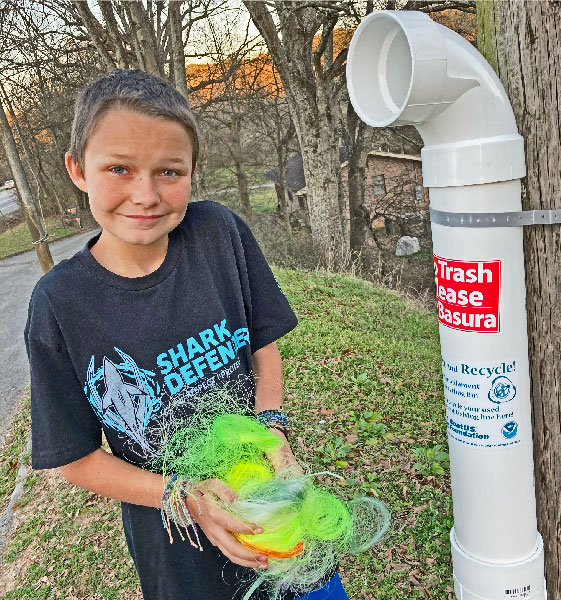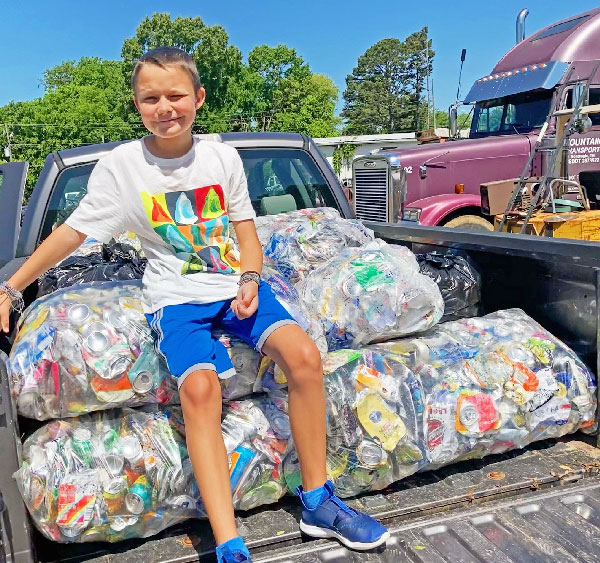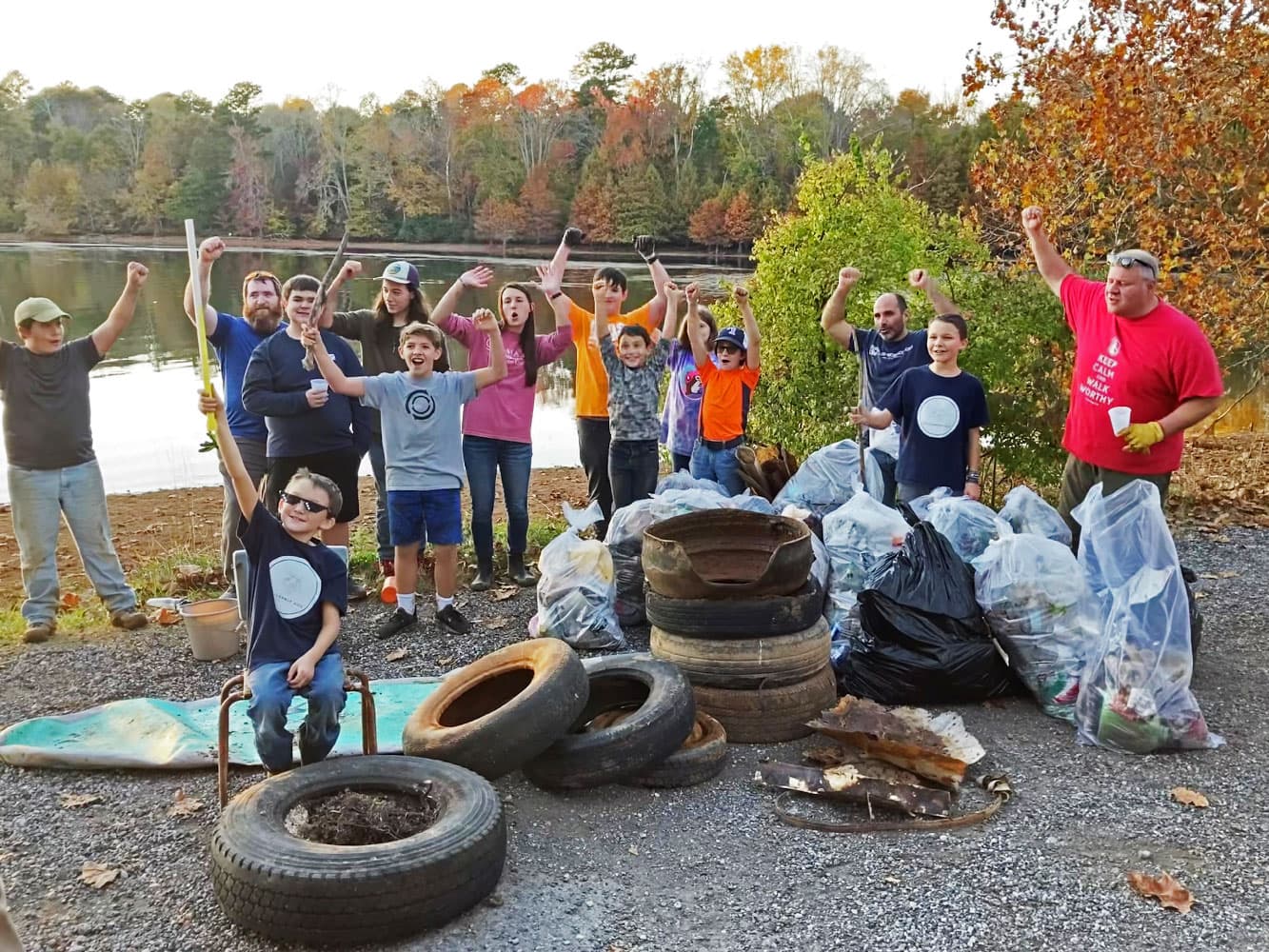“It was not just one cleanup, it was many cleanups” and we removed 14,000 pounds of trash out of the Tennessee River. “All kinds of trash; plastic bottles, plastic bags, cigarette butts,“ were floating in the water. But, according to 12-year-old conservationist Cash Daniels, “Fishing line is one of the worst pollutants – and especially in Tennessee because we have a lot of bass fishing tournaments here.” To offer sports fishers a better way, Cash arranged for fishing line recycling bins to be available, keeping the monofilament from becoming part of the river junk. Money from thousands of pounds of recycled aluminum cans helped pay for the bins and other projects.
Where does Cash get the ideas to improve conditions on the river and other areas? “I make a lot on my own, but my best friend, Ella, helps some – and together we formed “The Cleanup Kids.” That’s a YouTube channel aimed at inspiring other kids to tackle trash in their own hometowns.
Also, inspirational, Cash has written a book: “One Small Piece.” The title means, “One person can pick up one piece [of trash] and make a difference.”

What’s in Cash’s heart as he hauls in trash carelessly left behind by others? “We’re told to honor God’s creation. We’re told to be good stewards of creation, so I am honoring God by doing this.”
Cash’s mother, Erin, is extremely proud of her boy and what he’s doing. “He has always loved wildlife and fish, in particular. We would take him to the aquarium when he was literally the age of two or three and he wouldn’t ever want to leave. That’s where he wanted to be. That’s what he loved.” By age seven, Cash learned about plastic river pollution and he decided that he was going to change it. “He was going to make a difference – and that’s what he’s been doing ever since.”

Cash, from Chattanooga, has seen his service recognized often. Currently, he’s one of Time Magazine’s “Kid of the Year” nominees. “Just to be nominated for top five out of thousands of kids is just amazing!” It was a big surprise.
In our complete interview podcast below, Cash offers some simple tips for anyone wanting to begin making a conservation difference where they live. And learn what Cash is thinking about professionally after his school days are over.


